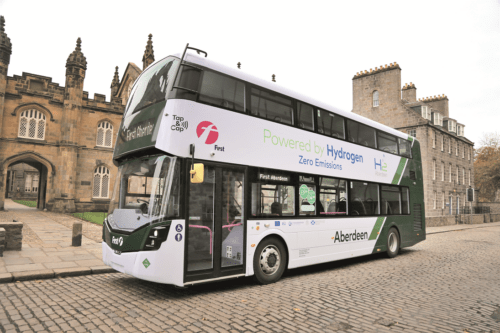
How do we expand infrastructure to operate hydrogen coach fleets across the UK, asks Jake Martin, EMEAI Hydrogen Business Development Manager at Haskel
The advantages of hydrogen as a fleet decarbonisation solution are numerous, but as fleet owners consider how best to decarbonise, it is important to consider how to expand infrastructure to meet the pending demand which is foreseen.
Hydrogen fuel cell technology is not new – local authorities across Europe have now been using hydrogen-powered buses for many years, demonstrating its advantages and reliability in practice. One of the most notable technological developments took place in Kittybrewster, Aberdeen, where 15 of the world’s first model of hydrogen-powered double-decker bus were introduced in 2021, following an £8.3 million grant from the EU and Scottish Government. These buses have now travelled more than one million miles, preventing 1,700 tonnes of carbon dioxide emissions being released into the atmosphere.
These successes have been built on the advantages which fuel-cell buses (FCBs) offer over other decarbonisation alternatives. FCBs can travel up to 300 miles on a full tank of hydrogen and provide a quick refuelling experience which is remarkably close to that of diesel coaches. Furthermore, the refuelling infrastructure FCBs require is modular, allowing users to start with a small unit and scale up from there as their fleets grow.
[…]By subscribing you will benefit from:
- Operator & Supplier Profiles
- Face-to-Face Interviews
- Lastest News
- Test Drives and Reviews
- Legal Updates
- Route Focus
- Industry Insider Opinions
- Passenger Perspective
- Vehicle Launches
- and much more!


